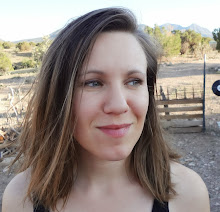 My posts are long. And far between. So here's a quick thought on dialogue, the 2x4 of the screenwriter's trade.
My posts are long. And far between. So here's a quick thought on dialogue, the 2x4 of the screenwriter's trade.I wrote a play once. Back in junior college when I wanted to be Eugene O'Neill. I sent it off to Jeffrey and received back one of the only pieces of literary advice for which I have ever had much use. This was a two-man, one-act ditty about a hit man, his mark, and the inevitable change of heart, all set in the junior college romance of a Vegas all-night buffet. Jeffrey said, "Both these guys sound like you." It was true. And that fact has become one of the guiding principles of my screenwriting.
Now this is not to say that you can't have a successful work wherein the characters all sound the same, far from it. But a 60 year old retiree and the 30 something punk who has been sent to off him should not sound like a middle class 19 year-old chick from California.
How, then, do you make ten characters have their own voice, and not sound like you? Personally, I cheat. Syd Field says, "Dialogue is a function of character. If you know your character, your dialogue should flow easily in line with the unfolding of your story." Now that would be wonderful. But knowing the ins and outs of a character and knowing how those ins and outs influence the way they construct sentences is a whole new world of "Knowing".
I say, why go to all that trouble when the world around you is already filled with people who talk in a way that is wholly unique, wholly their own?
So, the main character in Fine Arts? A guy I had a crush on in high school. His coworker in that script? A current coworker of mine.
And in the new script I'm writing, the love interest talks like my ex-boyfriend. The protagonist takes word right out of the mouth of one of my best high school girlfriends. Fun fact: I sometimes futz with the names of the characters to give a little homage to the source material.
Now this is not to say that the characters ARE the people I'm referencing. They most certainly are not. I'm just borrowing the way people I have known talk, as a tool to get out of my own head, out of my own way of saying things and constructing thoughts.
Damn. That wasn't a very short post, was it? I blame god.

2 comments:
Okay. As a coworker of yours, I'm feeling just a bit paranoid.
I'd say Juno was successful and all of it's characters talked the same way and had the same sense of humor and had the same quick wit. But I'd also say that's what I disliked the most about it.
But with Glengarry Glen Ross part of the deal was the way that they talked helped define the world they lived in. And there was, I'd say, a bigger "message" to that movie.
Happily, ultimately, there are no rules and things work for some and not for others. The mystery of good art.
In the meantime I'm gonna start listening to how people talk more.
I love thinking about this shit!
Yes. Juno the movie was like an autobiography of Juno the character. Everything came from her, including the way people spoke. So if you don't cozy up to Juno, you probably won't fall in love with her world view. I didn't.
In Glengarry, everyone talked the same because everyone was the same, or wanted to be. There was one character who couldn't be that ABC man anymore, and, though I haven't seen it in a while, I wonder if Jack Lemmon's character didn't start to talk differently. Hmmm.
To quell your nervousness, the coworker was not you. When you see the movie, I look forward to seeing if you can guess who it is.
Post a Comment